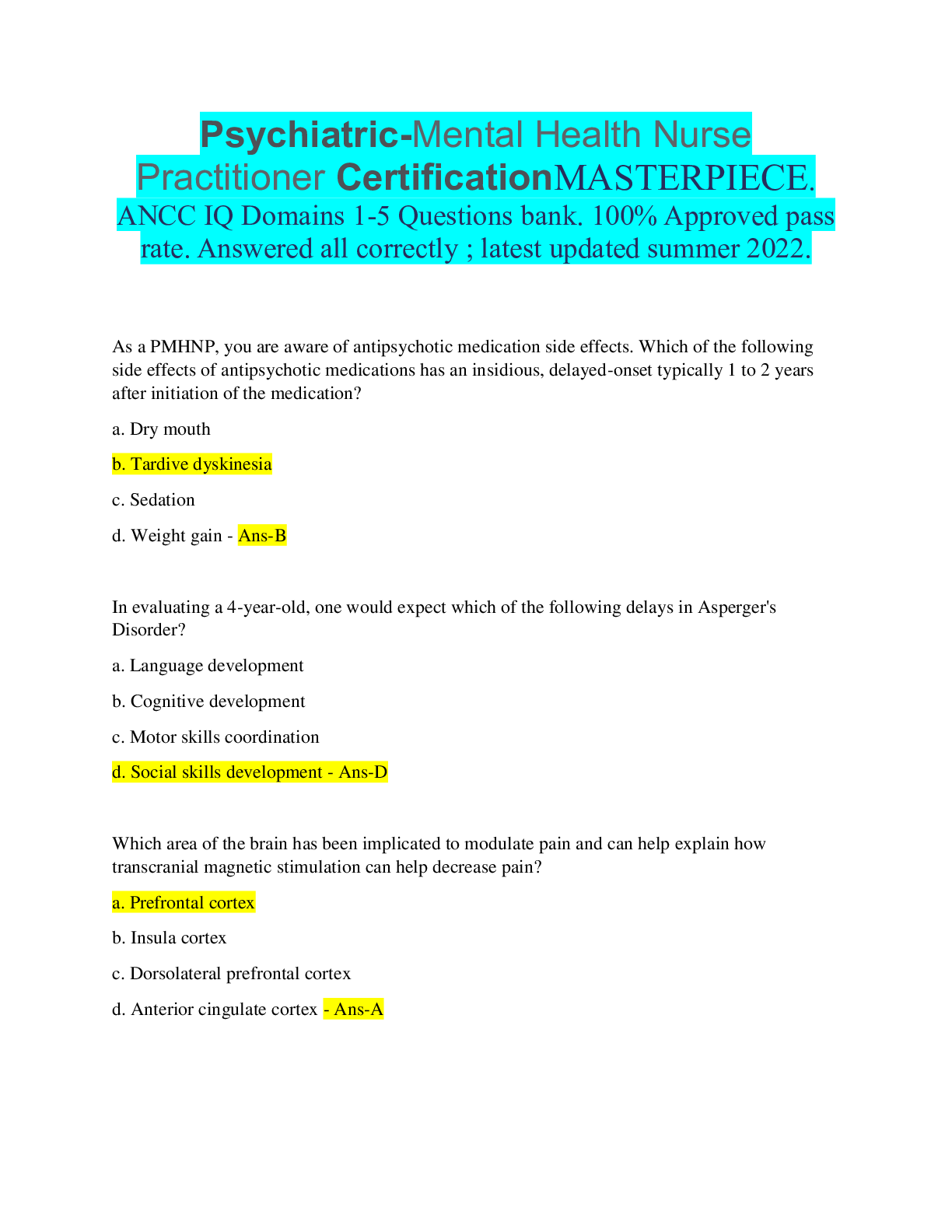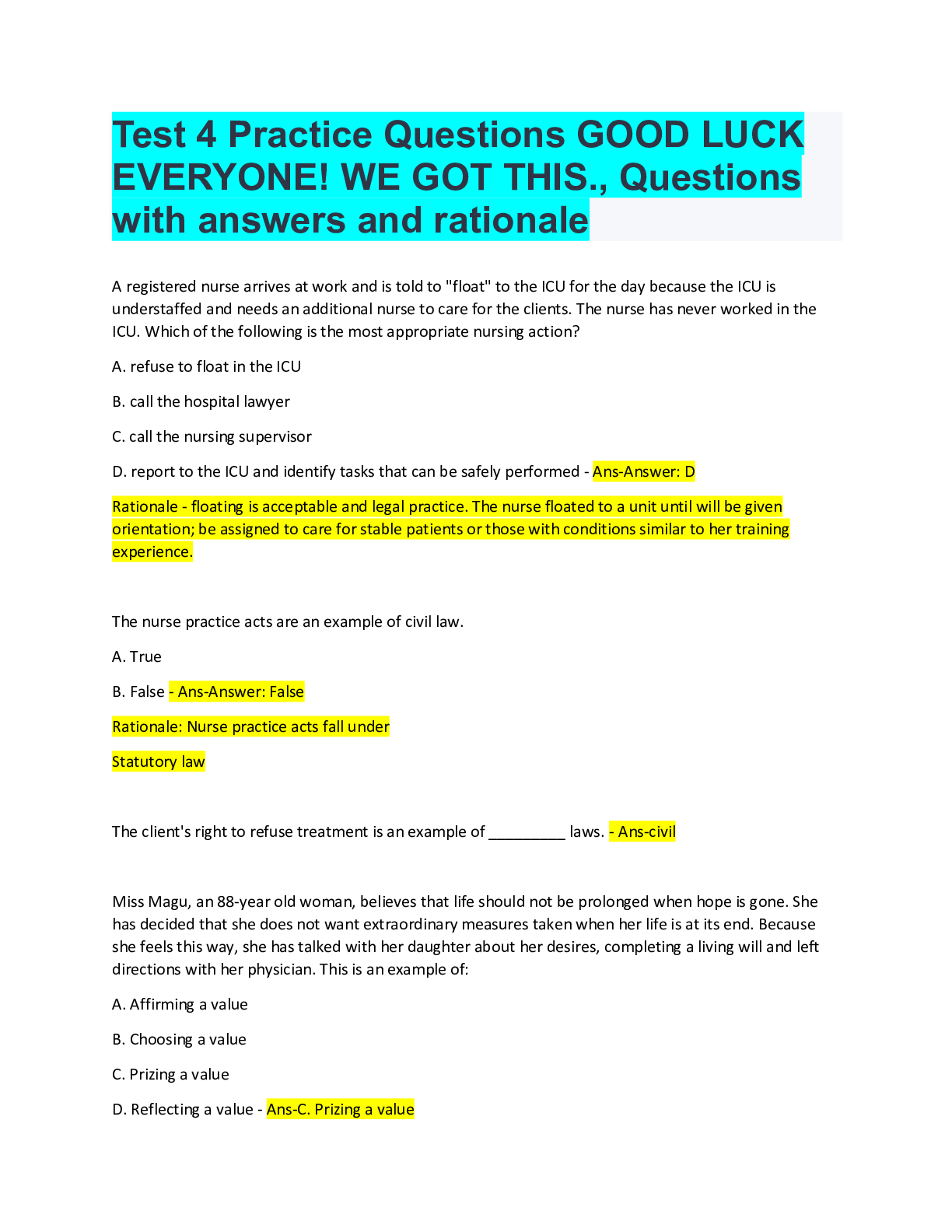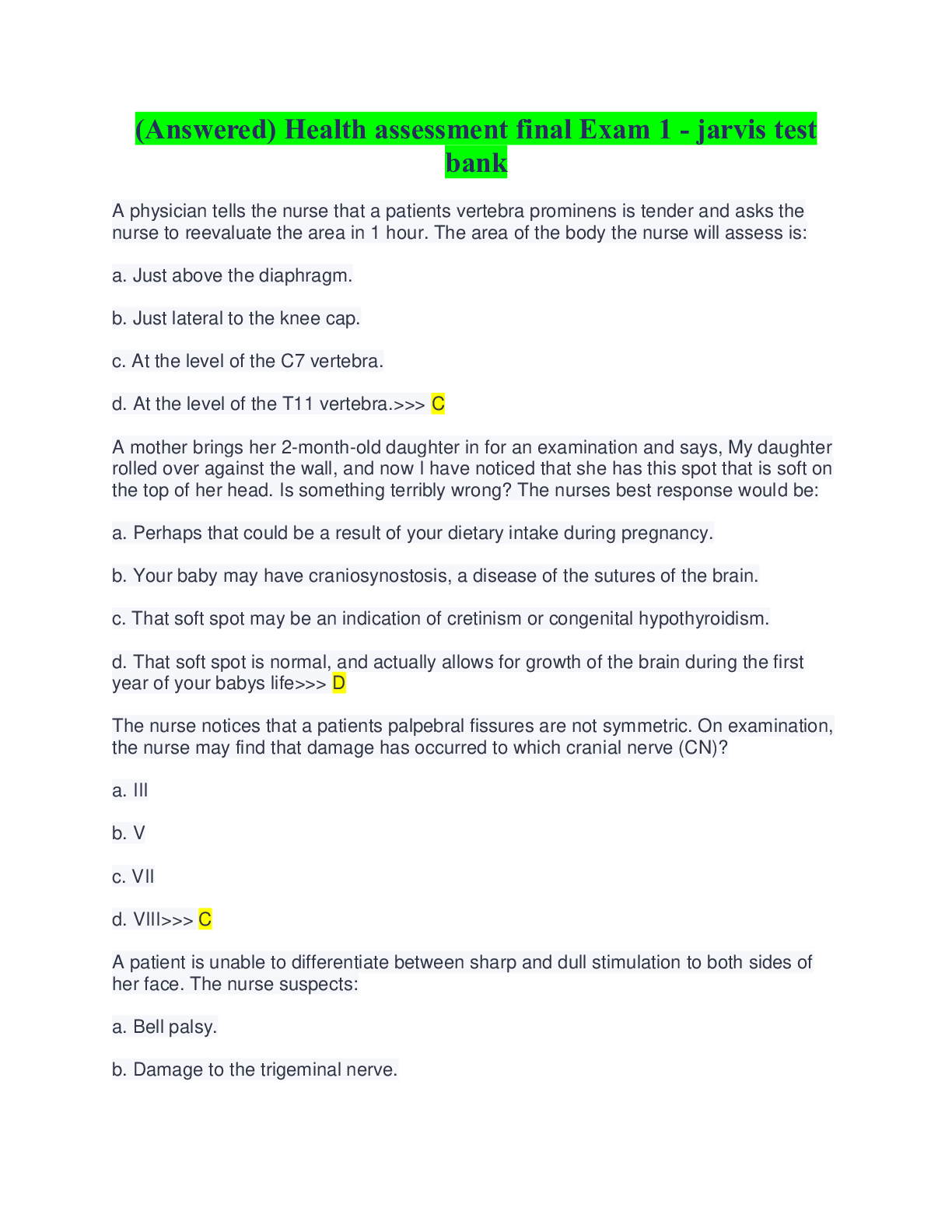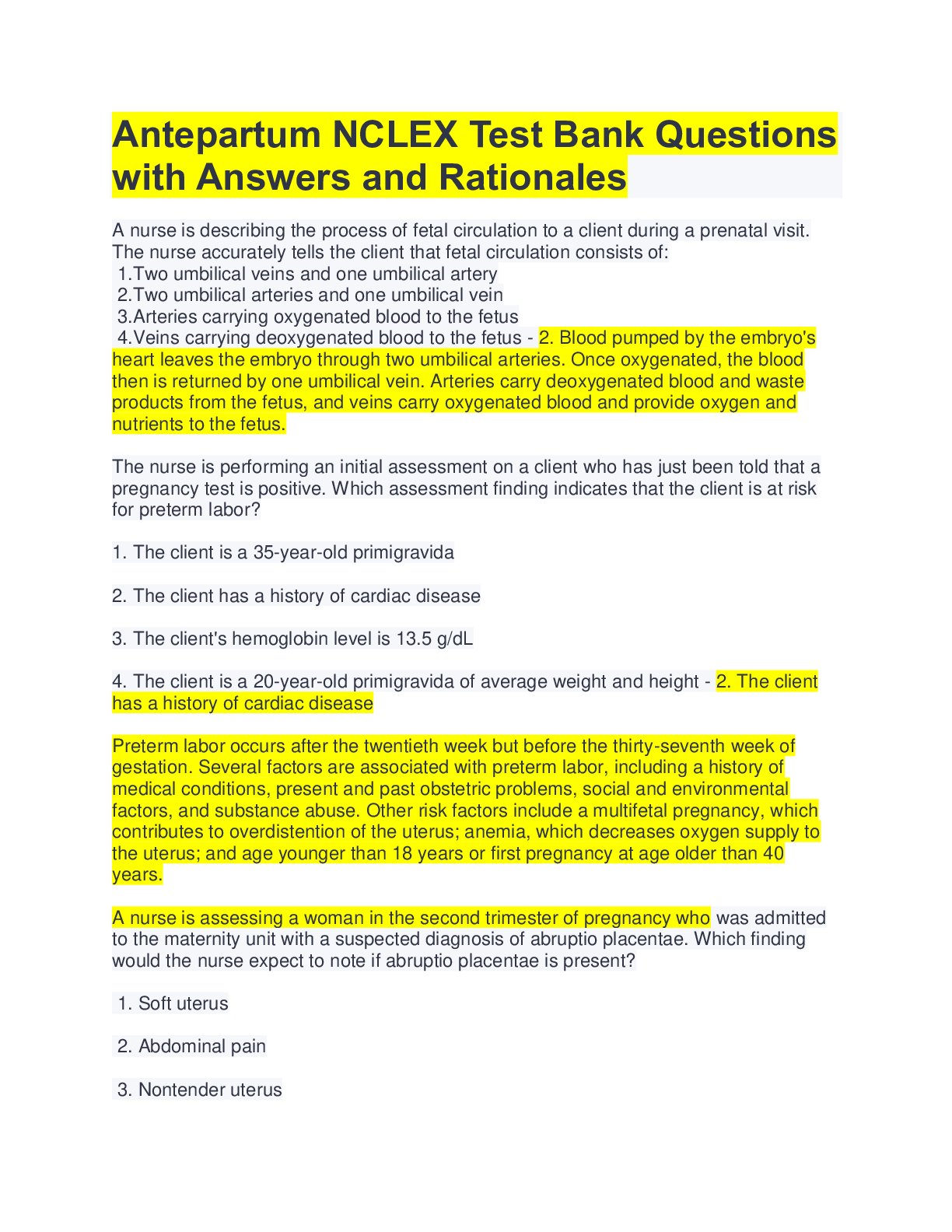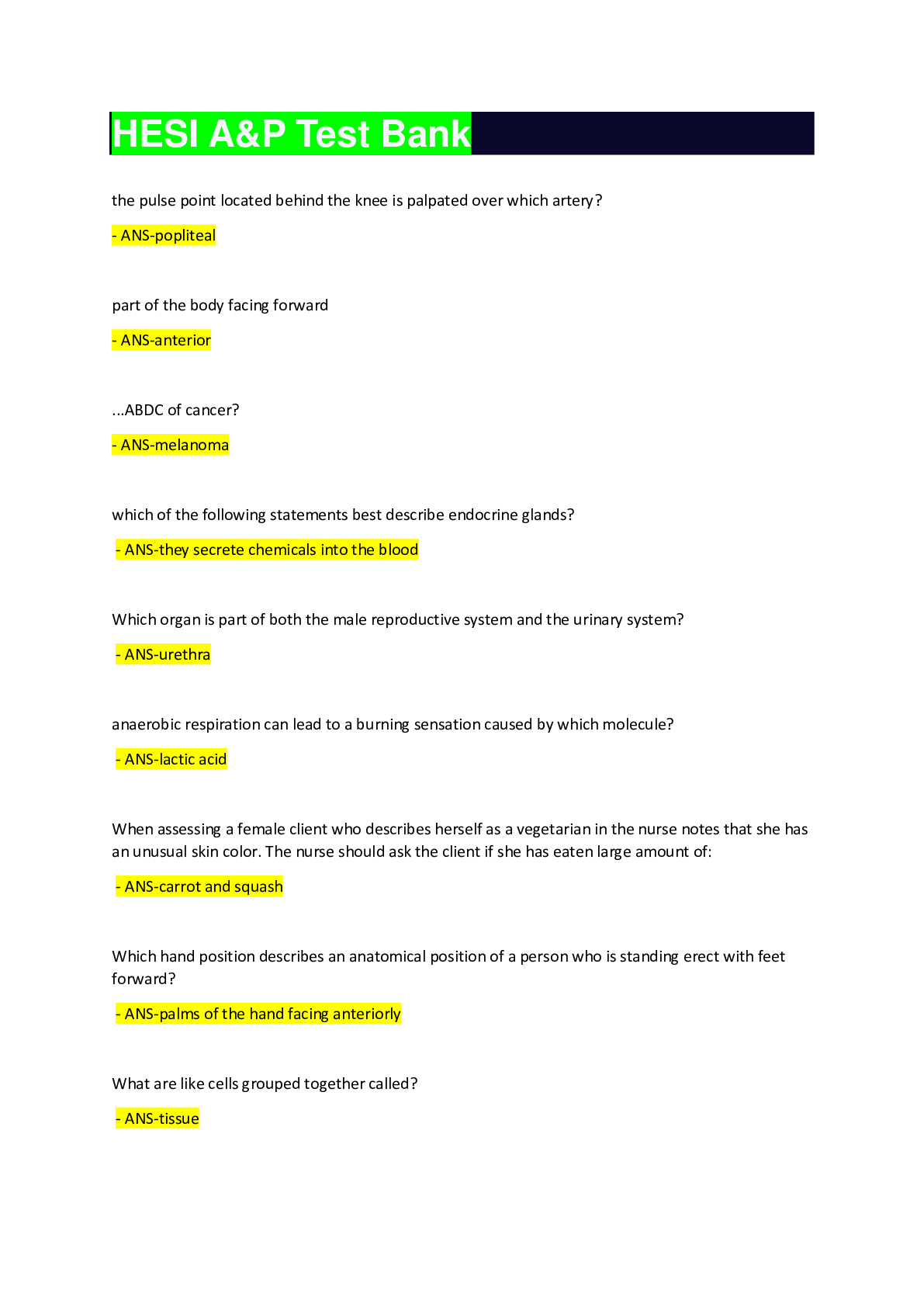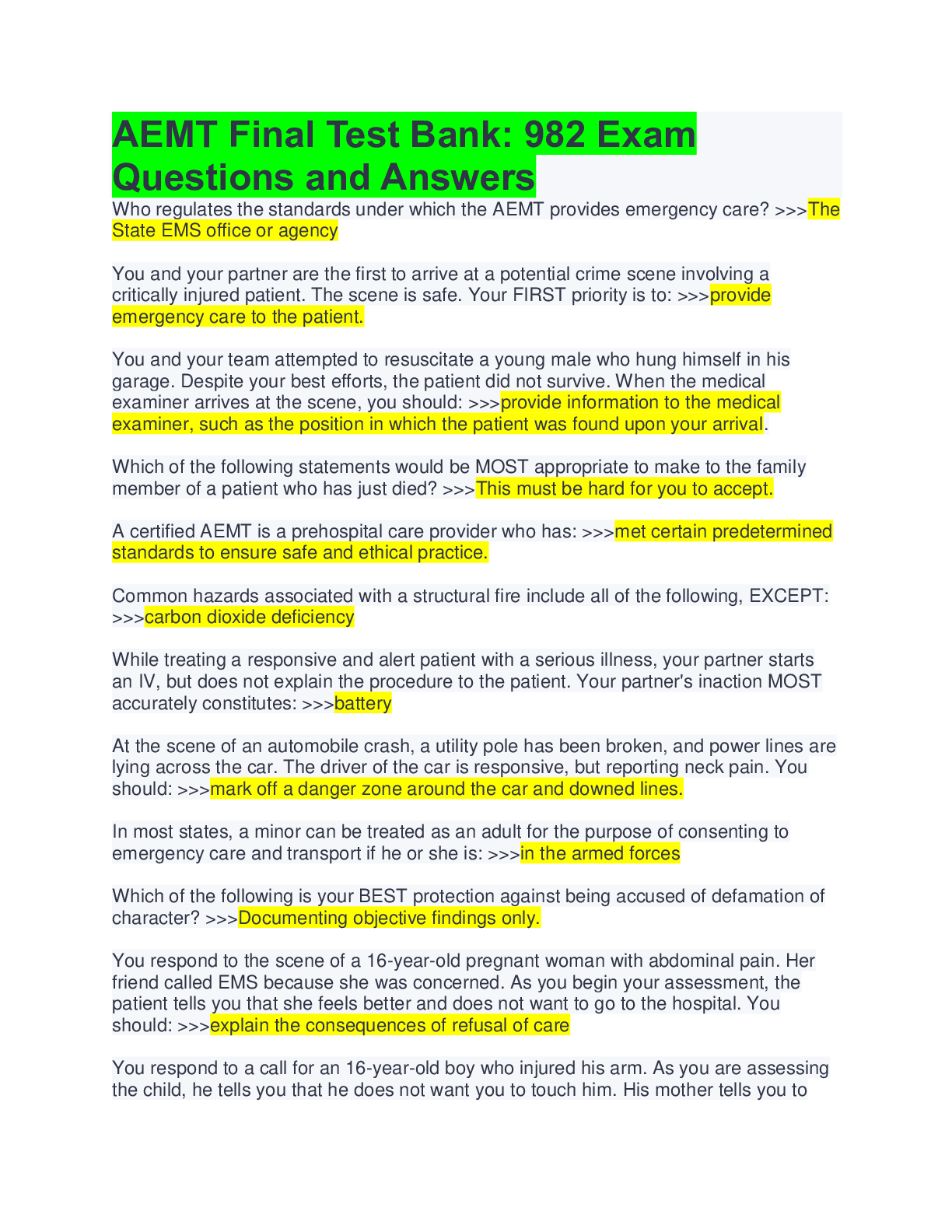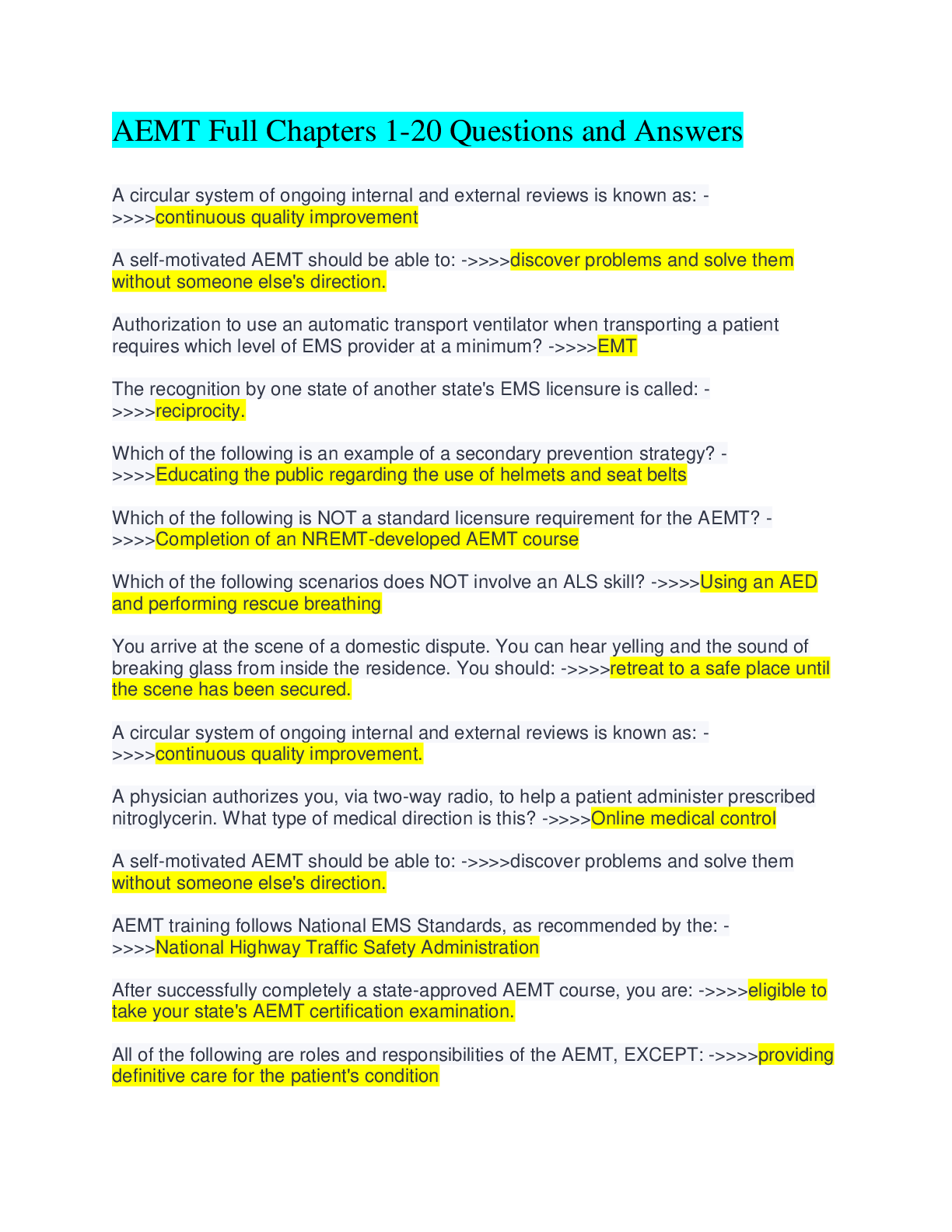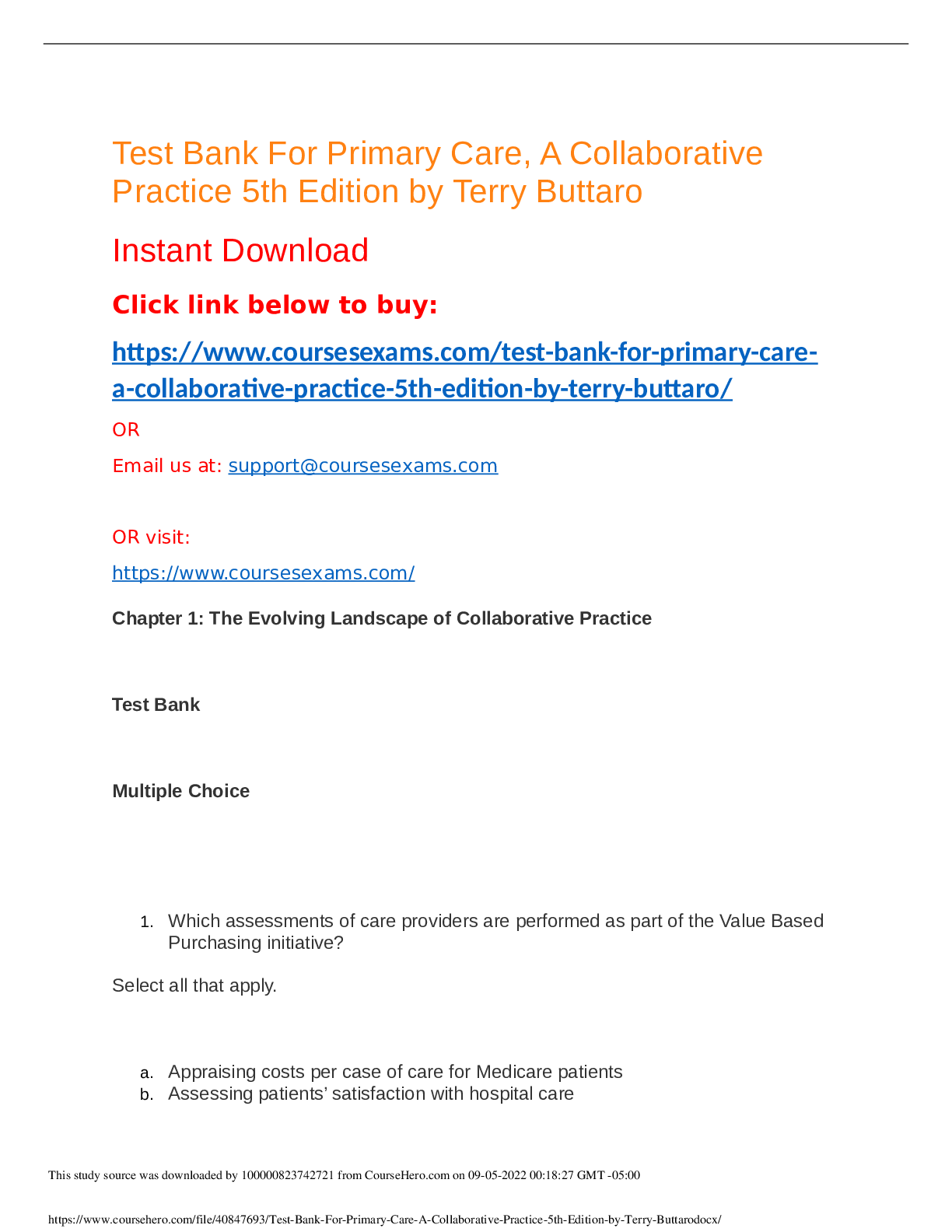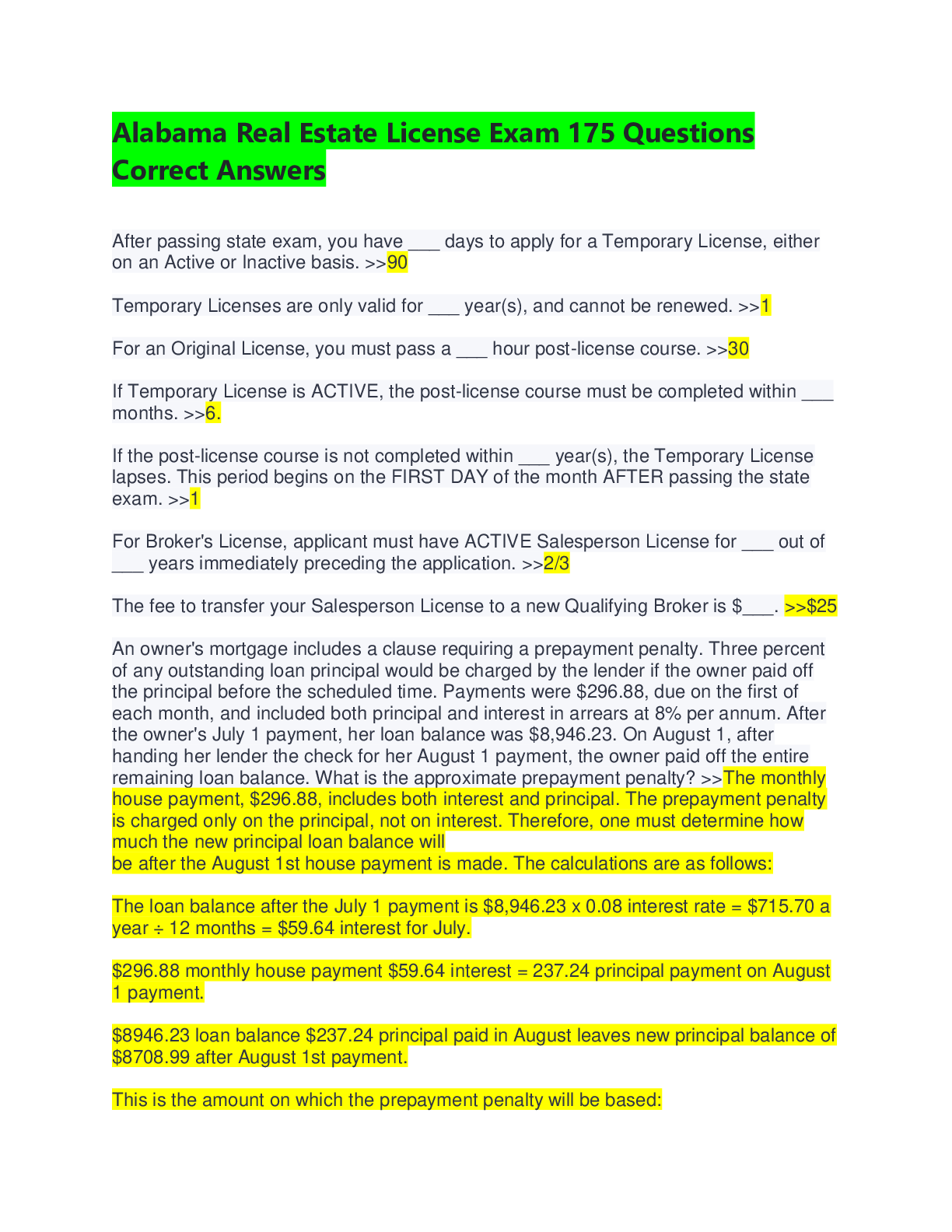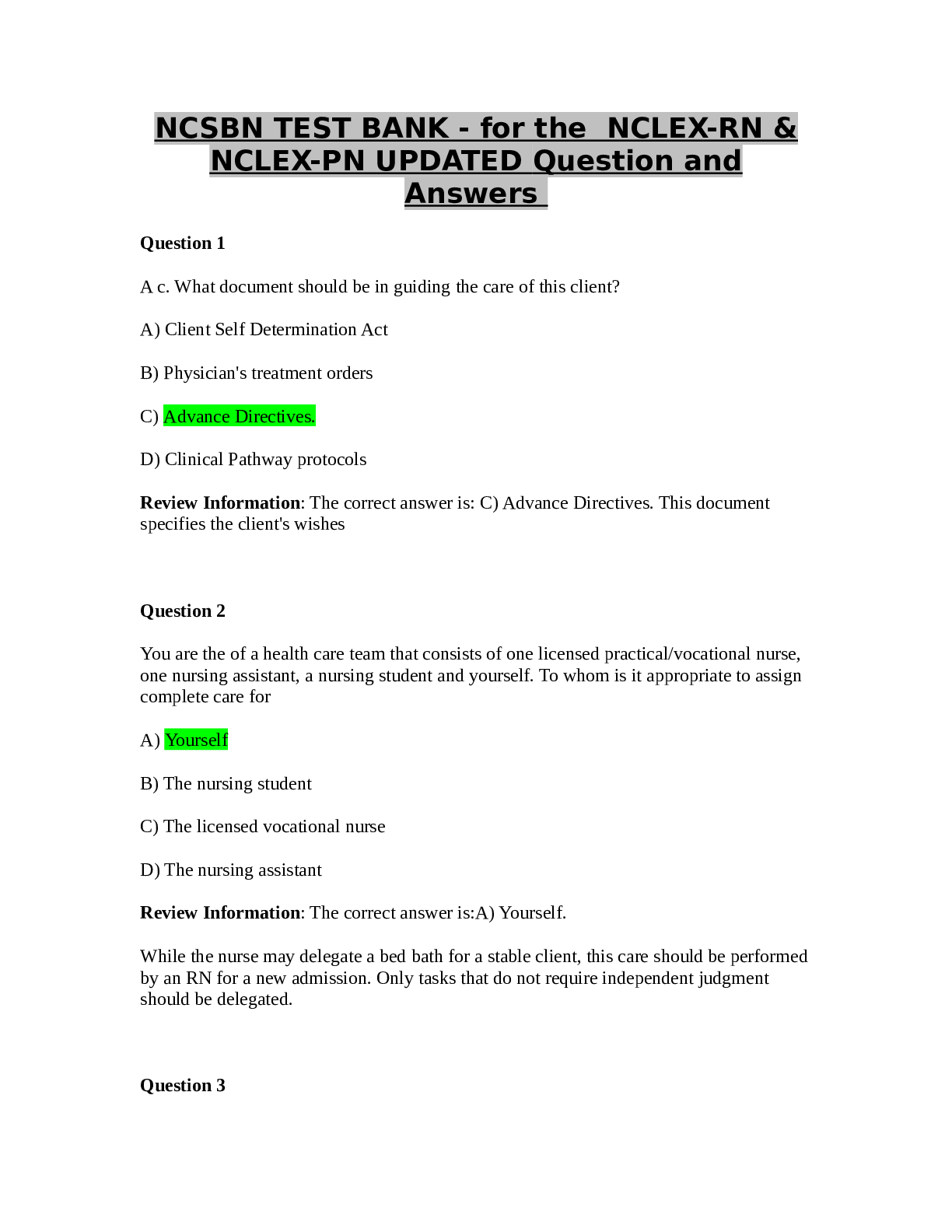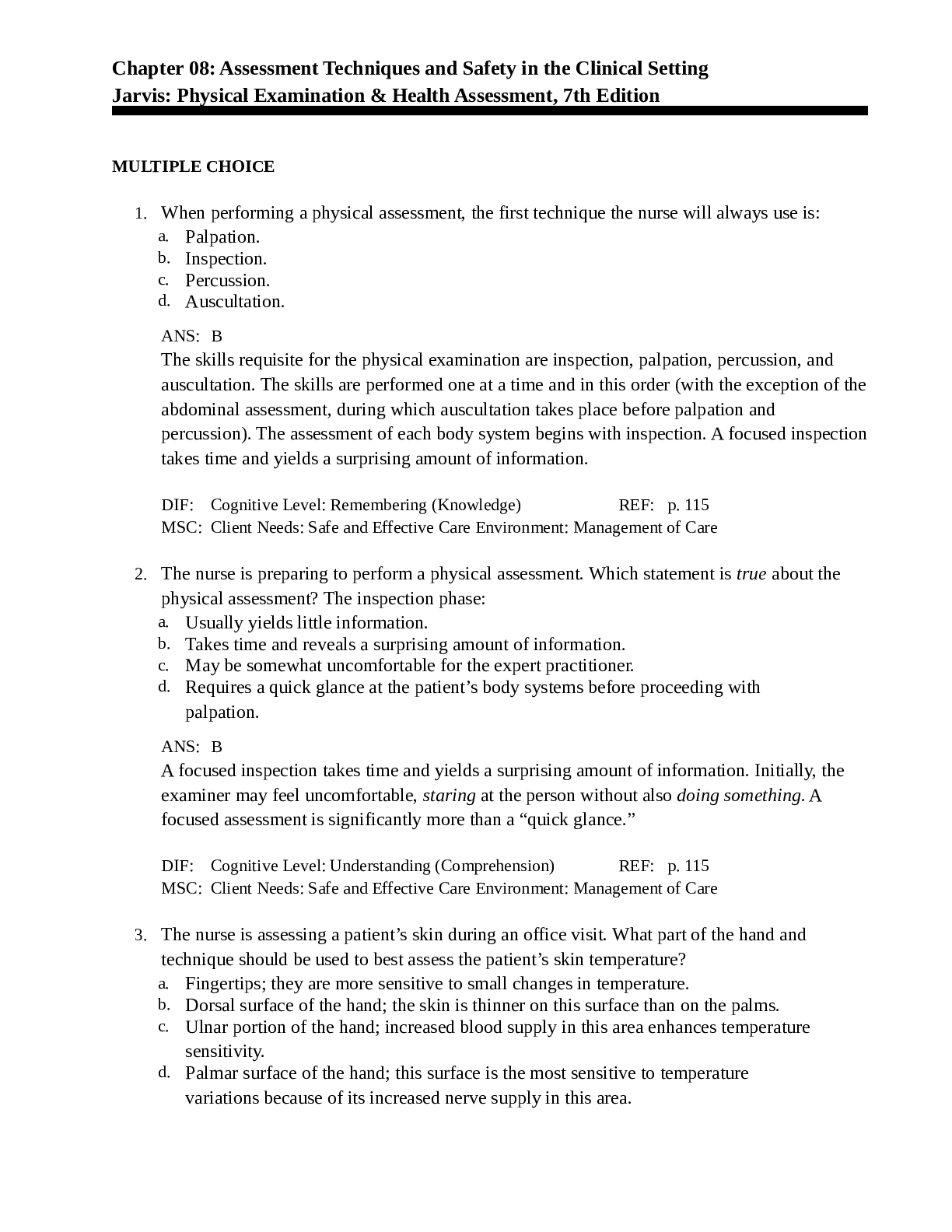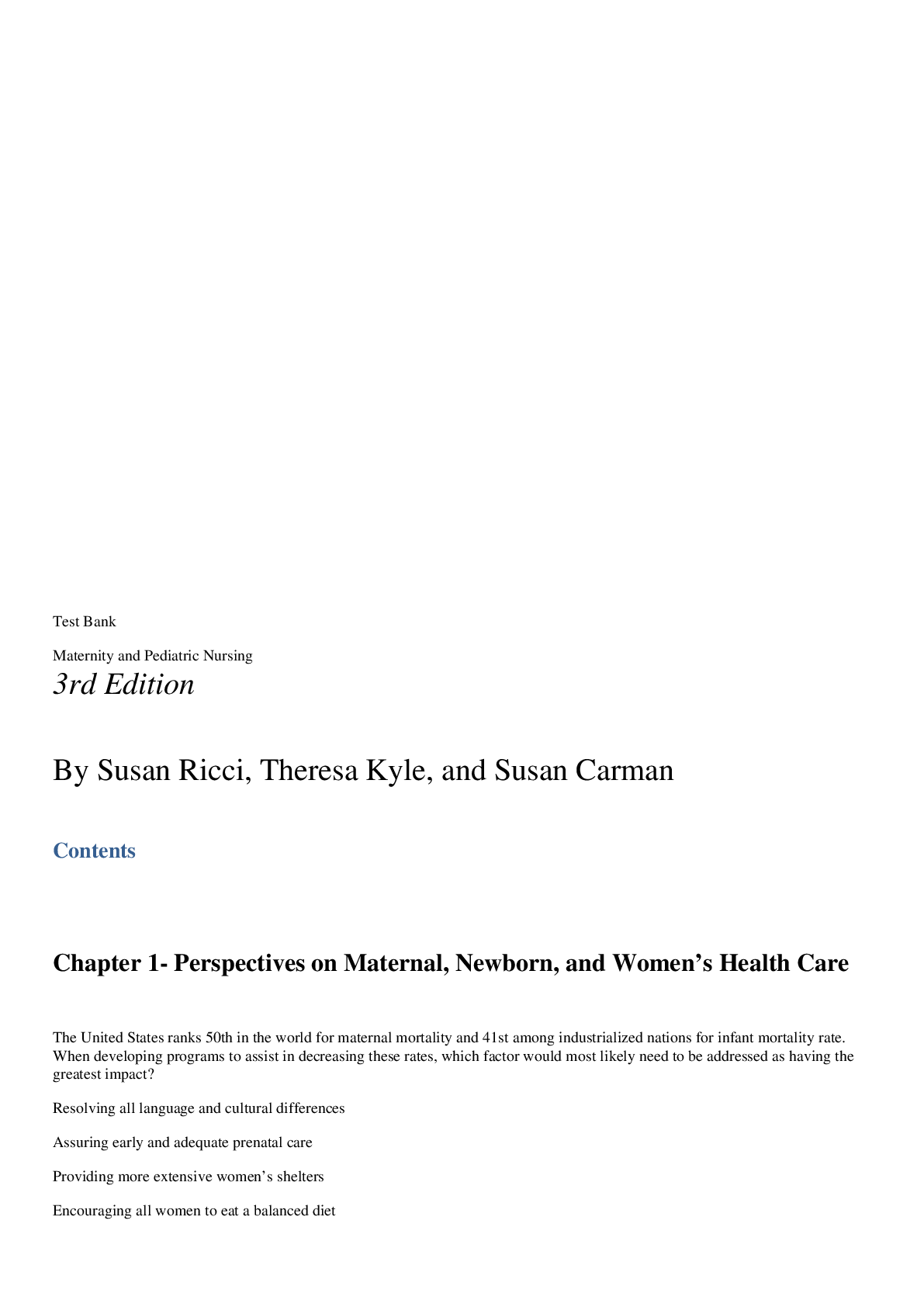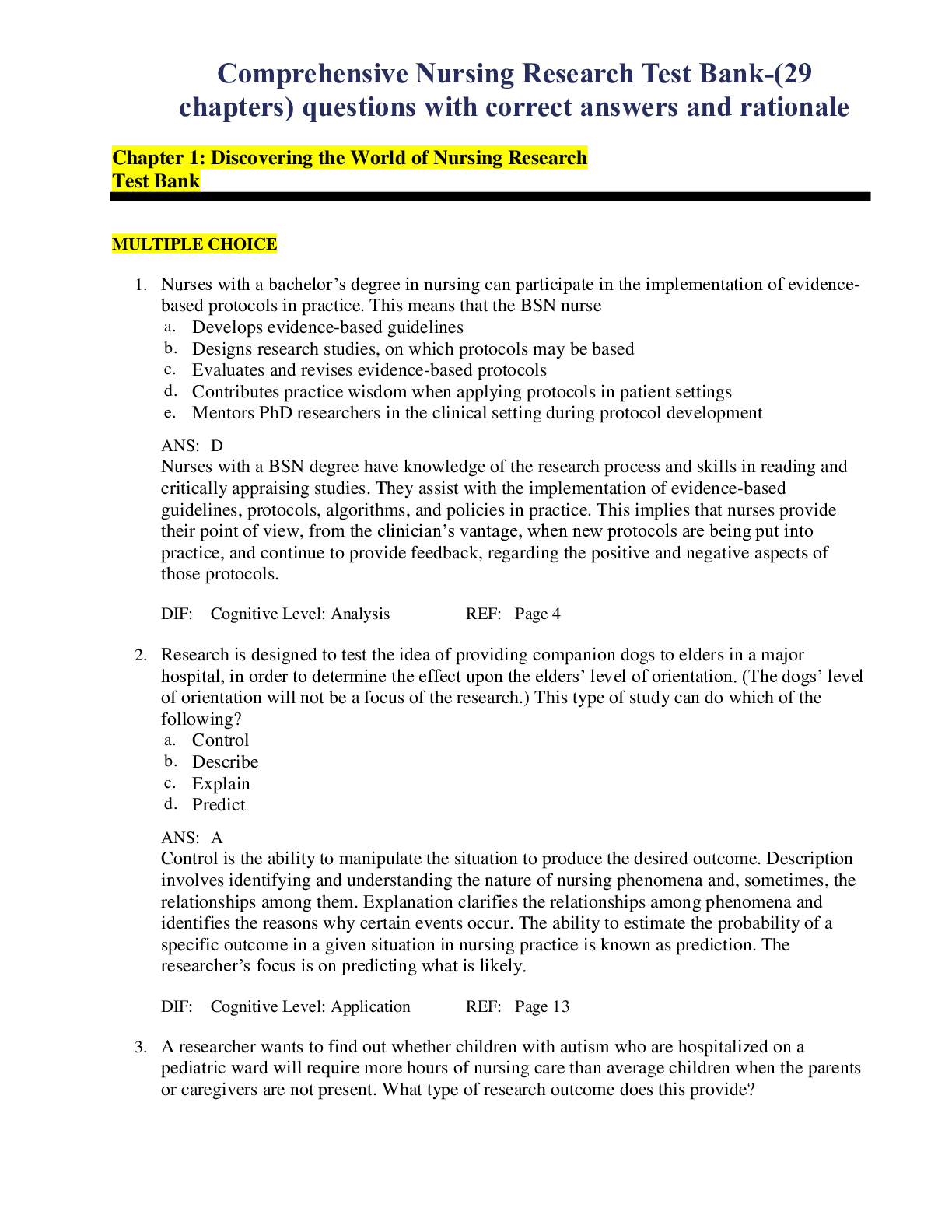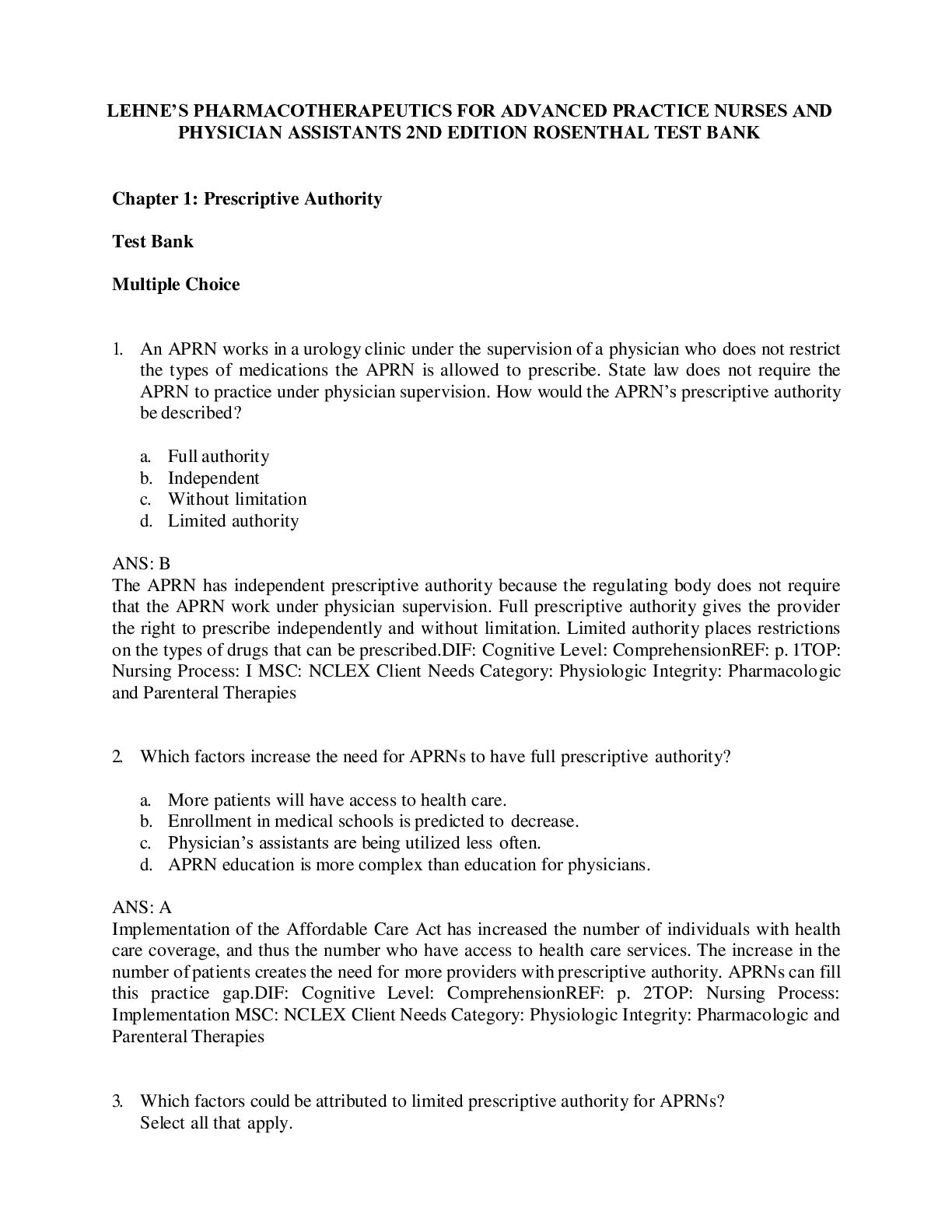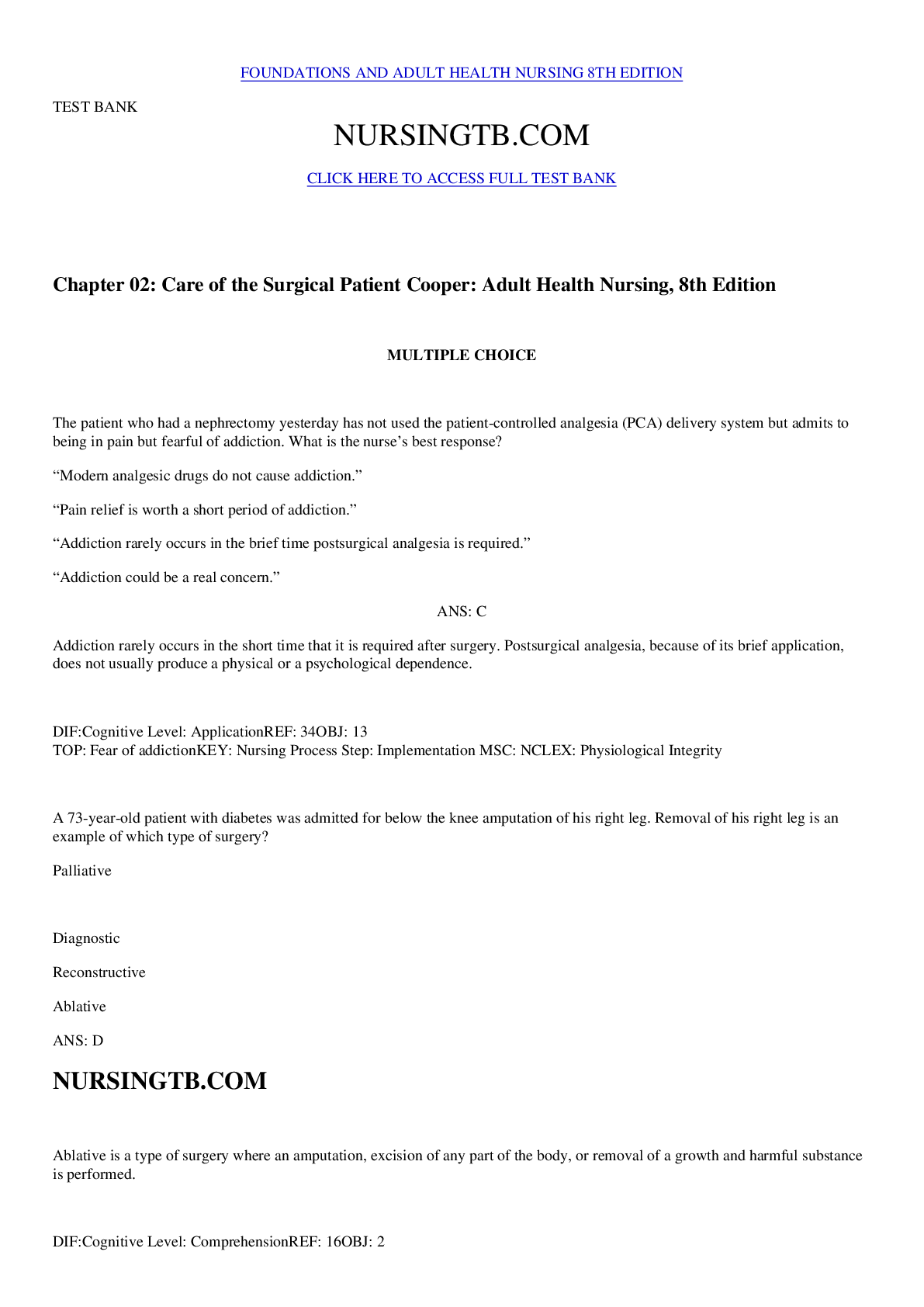Respiratory Care Practice Exam Questions with Correct Answers
Document Content and Description Below
1) A patient receiving positive expiratory pressure (PEP) therapy through a mouthpiece at 10 cm H2O has minimal secretion production. Course crackles are heard during auscultation. The respiratory the... rapist should recommend which of the following? A. Decrease the PEP to 5 cm H2O. B. Discontinue the treatment and begin percussion and postural drainage. C. Increase the PEP to 15 cm H2O. D. Administer the treatment with a mask instead of the mouthpiece. Correct Answer is C Rationale: PEP therapy is indicated for patients with retained secretions. Positive pressure applied during exhalation aids in the mobilization of secretions. Generally, PEP levels of 10 to 20 cm H2O are used. If the PEP used does not result in the mobilization of secretions, the PEP should be increased. 2) A heated humidifier is delivering 26 mg of H2O/L of gas to an intubated patient. Which of the following statements concerning this situation are true? 1. A humidity deficit exists. 2. The patient's secretions may become thicker. 3. The heater temperature should be decreased. A. 1 only B. 1 and 2 only C. 2 and 3 only D. 1, 2, and 3 Correct Answer is B Rationale: Whenever the amount of H2O being delivered to the patient is less than 44 mg/L, a humidity deficit exists. This decreased H2O delivery can result in thickening of pulmonary secretions, with an increased potential of mucous plugging and atelectasis distal to the plugs. Because cooler air cannot hold as much H2O as warmer air, decreasing the heater temperature increases the humidity deficit. 3) The respiratory therapist is administering acetylcysteine (Mucomyst) via a handheld nebulizer to a patient who suddenly becomes short of breath. Which of the following is the most appropriate recommendation at this time? A. Have the patient take deeper breaths. B. Add racemic epinephrine to the nebulizer. C. Stop the treatment and administer albuterol. D. Stop the treatment and administer cromolyn sodium. Correct Answer is C Rationale: A common complication of acetylcysteine administration is bronchospasm. When respiratory difficulties occur during a Mucomyst treatment, suspect bronchospasm and administer a bronchodilating agent. [Show More]
Last updated: 1 year ago
Preview 1 out of 70 pages
Instant download
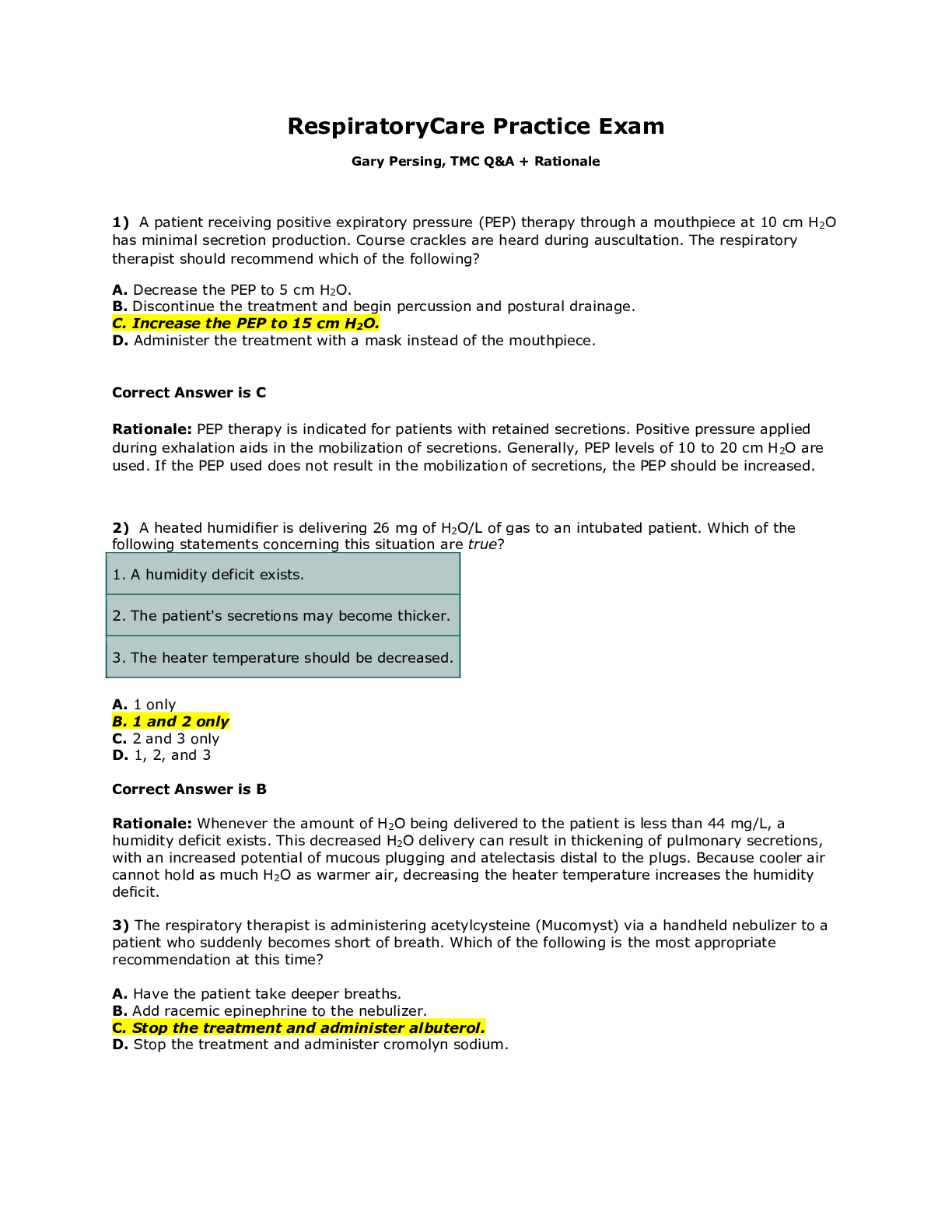
Buy this document to get the full access instantly
Instant Download Access after purchase
Add to cartInstant download
Reviews( 0 )
Document information
Connected school, study & course
About the document
Uploaded On
Sep 07, 2022
Number of pages
70
Written in
Additional information
This document has been written for:
Uploaded
Sep 07, 2022
Downloads
0
Views
74

